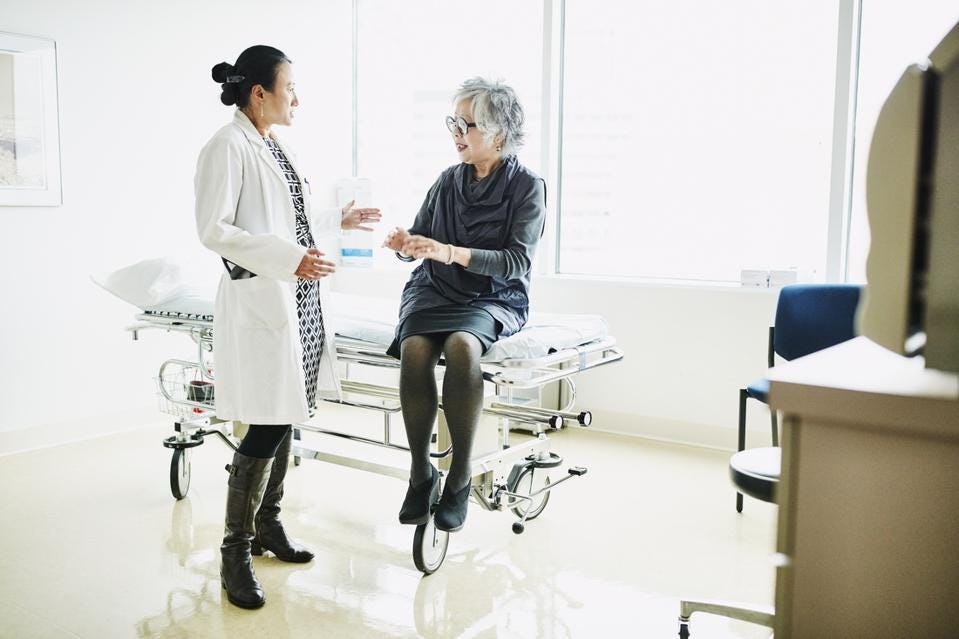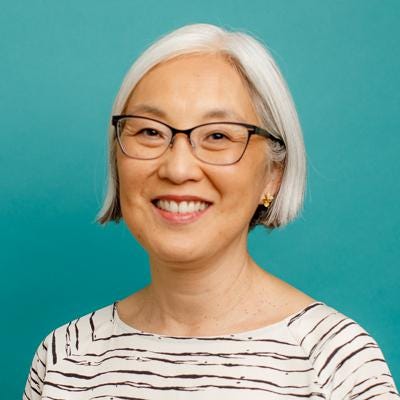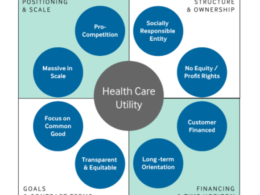Forbes — Technology Council
Sophia Chang
Mar 3, 2021
Dr. Sophia Chang is a practicing general internist at San Francisco General Hospital, adjunct faculty at UCSF and CCIO at Clover Health.
Executive Summary by
Joaquim Cardoso MSc.
Health Revolution — Foundation
Primary Care — Institute
June 24, 2022
What are some of the lessons learned from covid?
If the coronavirus pandemic has taught us anything, it’s that human beings desperately need personal connection and interaction
- America (and the world) has struggled to contain Covid-19 precisely because people have found it difficult to isolate themselves from their family, friends and communities.
- It’s in our nature to be with others, even though we know it can be dangerous for ourselves and others right now.
- What exacerbates our current health crisis is actually core to effective medical care.
- Meeting each person’s need for human interaction is key to addressing the other pandemic facing America — the crisis of chronic disease.
What is the situation of chronic diseases?
Chronic disease was a pressing public health issue prior to Covid-19, and it retains that distinction even though it’s currently being overshadowed by the coronavirus pandemic.
- In recent years, at least 133 million Americans live with one or more chronic diseases (40% of the entire population).
- This is especially pronounced in our growing senior population, where 19% have three or more serious chronic conditions.
What is the situation of primary care physician workforce?
- Despite the obvious need for primary care physicians, they are a shrinking share of the overall physician workforce.
- Fewer Americans now have one, and nearly half of adults don’t see one at all.
- With fewer medical students choosing that career path, America will face a shortage of up to roughly 55,000 primary care physicians in just over a decade.
What are the solutions?
Solving this problem is one of the greatest challenges facing American health care.
- Primary care physicians are facing record administrative and bureaucratic hassles, leaving them with less time to focus on patients.
- Hundreds of future doctors reject the primary care career path because it won’t pay enough to cover their educational debt, which often runs to more than $250,000.
The good news is that all these challenges can be overcome.
The bad news is that health care is trying to do so in the worst possible way.
- Innovations have largely focused on technology that replaces the primary care physician or on regulatory, administrative and financing issues rather than the care itself.
- Tools such as electronic health records have proven to be more cumbersome than enabling.
What are the recommendations?
- Primary care physicians shouldn’t be replaced.
- They should be empowered to do what they do best — work closely with patients to improve their health.
- Those efforts, however, are only as effective as the trust patients have in those interventions, ideally informed by their primary care physician.
The need is now. When this pandemic passes, which it will, tens of millions of Americans will still face chronic diseases.
ORIGINAL PUBLICATION (full version)

Primary Care Physicians Are More Important Than Ever — We Should Empower And Invest In Them
Forbes — Technology Council
Sophia Chang
Mar 3, 2021
If the coronavirus pandemic has taught us anything, it’s that human beings desperately need personal connection and interaction.
America (and the world) has struggled to contain Covid-19 precisely because people have found it difficult to isolate themselves from their family, friends and communities.
It’s in our nature to be with others, even though we know it can be dangerous for ourselves and others right now.
What exacerbates our current health crisis is actually core to effective medical care.
In fact, meeting each person’s need for human interaction is key to addressing the other pandemic facing America — the crisis of chronic disease.
Chronic disease was a pressing public health issue prior to Covid-19, and it retains that distinction even though it’s currently being overshadowed by the coronavirus pandemic.
In recent years, at least 133 million Americans live with one or more chronic diseases (40% of the entire population).
This is especially pronounced in our growing senior population, where 19% have three or more serious chronic conditions.
In recent years, at least 133 million Americans live with one or more chronic diseases (40% of the entire population).
This is especially pronounced in our growing senior population, where 19% have three or more serious chronic conditions.
As a physician with over 30 years of experience in the treatment room, the classroom and the boardroom, I know that patients with chronic disease crave personal interaction with health care professionals.
They’re especially dependent on primary care physicians — the “captains of the ship” who take the lead in helping patients navigate the ups and downs of disease management.
The closer the connection between patients and their physicians, the better the care the patients tend to receive and, ultimately, better quality of life is achieved.
I see this truth borne out every day in my work. I also hear people frequently express their desire for a closer doctor-patient relationship.
I’ve lost track of how many times my family, friends and colleagues have asked if I have any recommendations for a primary care physician.
Most people intuitively grasp the need to work with someone to manage their health. We innately understand that a stronger personal bond leads to better personal health.
But all is not well. Despite the obvious need for primary care physicians, they are a shrinking share of the overall physician workforce.
Fewer Americans now have one, and nearly half of adults don’t see one at all.
With fewer medical students choosing that career path, America will face a shortage of up to roughly 55,000 primary care physicians in just over a decade.
At a time when more and more people need a strong doctor-patient relationship, those relationships are getting harder and harder to find.
Solving this problem is one of the greatest challenges facing American health care.
I have seen firsthand how primary care physicians are facing record administrative and bureaucratic hassles, leaving them with less time to focus on patients.
I’ve also spoken with hundreds of future doctors who reject the primary care career path because it won’t pay enough to cover their educational debt, which often runs to more than $250,000.
Whether I’m teaching future doctors or working with current ones, I often hear them say they’d gladly be primary care physicians, if they thought they could actually provide the high-quality, cost-conscious care that primary care is meant to provide. But they can’t, so they steer clear.
The good news is that all these challenges can be overcome.
The bad news is that health care is trying to do so in the worst possible way.
Innovations have largely focused on technology that replaces the primary care physician or on regulatory, administrative and financing issues rather than the care itself.
Tools such as electronic health records have proven to be more cumbersome than enabling.
Primary care physicians shouldn’t be replaced.
They should be empowered to do what they do best — work closely with patients to improve their health.
Primary care physicians shouldn’t be replaced.
They should be empowered to do what they do best — work closely with patients to improve their health.
The Covid-19 pandemic has shown how investors and policymakers can quickly spur incredible medical advances, with new vaccines being a prime example.
Those efforts, however, are only as effective as the trust patients have in those interventions, ideally informed by their primary care physician.
Now imagine if our society focused its energy on developing technology that supports and strengthens primary care physicians.
Now imagine if our society focused its energy on developing technology that supports and strengthens primary care physicians.
There is an urgent need for actors across the health industry to develop technology that addresses the challenges that primary care physicians face.
Only then will we expand that workforce, and all the benefits they bring to patient health.
There is an urgent need for actors across the health industry to develop technology that addresses the challenges that primary care physicians face.
The need is now. When this pandemic passes, which it will, tens of millions of Americans will still face chronic diseases.
Let’s use the power of personal relationships between patients and doctors to help them lead better, healthier, happier lives.
Originally published at https://www.forbes.com.
About the author
Dr. Sophia Chang is a practicing general internist at
San Francisco General Hospital, adjunct faculty at UCSF and CCIO at
Clover Health.












